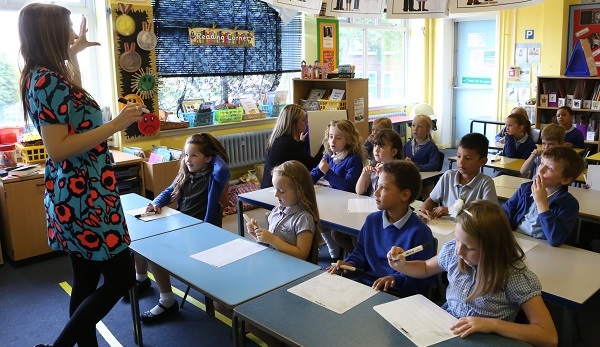What can you do to present yourself as an authority figure whilst being fair and self-evaluating? Steve Baker offers a checklist to help you become an assertive teacher

Many schools put up bright posters in their hallways with words such as ‘Aspiration’, ‘Confidence’, ‘Respect’ and ‘Resilience’, but during my visits to schools, it is hard to escape the conclusion that this must be a list of banned words, because I never hear them in classrooms.
We need to show staff how to use the school ethos in their lessons, or it will never have any traction in the school. Worse, it will have a corrosive effect on the trust between young people and adults because we put up these words in letters two feet high and then we never talk about them.
Arranging CPD on how to use the key tenets of the school ethos in lessons and around the site is a key action to take.
The school behaviour policy is a vital element in supporting staff to be assertive. Whatever systems of sanctions you put in place, you can be sure that your pupils will know it backwards within a week and be quite capable of quoting it. (‘No Miss, you can’t give me a C3, you haven’t given me a C2 yet!’) The system has to be simple enough that adults can remember it, not only when they are fantastically busy but also when they are under pressure from uncooperative pupils.
I regularly see staff who begin a class discussion and fail to tell pupils the rules of engagement. In other words, they have an expectation in their heads that pupils will put up their hands to speak, but they don’t share this with pupils. Then they allow quite a lot of calling out before it gets too much and then say ‘We don't shout out’, in flagrant contradiction of what they’ve just been tolerating.
Describe the behaviours you want to see, in detail. These might include, for example:
You may be familiar with ‘Whackamole’, an attraction that you can find at Clacton, Blackpool or other seaside resorts. You put your money in, then the moles pop up randomly and you set about bashing them with a hammer. I use this metaphor to describe the approach of teachers who deal with behaviour reactively. They plan the lesson content but not for pupil behaviour, thinking that when some ‘behaviour’ happens, they’ll deal with it then. It is any wonder that pupils, unsure of the teacher’s expectations, begin to wander off track?
The calm use of available sanctions will demonstrate the teacher’s boundaries.
Faced with a pupil who persists in shouting out, the passive teacher will just keep nagging, and the aggressive teacher will send the pupil out. The assertive teacher will use the language of choice:
‘Jake, this is your warning for calling out. If you do it again you’ll be back at break; your choice.’
Flexible displays that show the desired learning behaviours at any stage of a lesson are an excellent way to assert clear expectations: ‘Pair voice, table voice, class voice’. Things like this can be drilled, just as with hands up/no hands up.
To read Steve Baker's full article on how to encourage assertiveness in staff, members can download the May 2016 edition of Insight from 'My Account'. Not a member? Read more from Steve on establishing high expectations of behaviour.
One frequent complaint I hear is ‘if I ask a pupil to come back for detention they don't come.’ Good leadership teams back their staff, deploying associate staff if necessary to procure pupils at the end of the day. Pupils soon learn that sanctions cannot be avoided. Assertive teachers will thrive in assertive schools.
Assertive teachers are self-aware, which enables them to use themselves as examples i.e. ‘I’m not raising my voice’ or ‘I’m speaking respectfully to you.’ This description of the obvious is a great technique because it avoids telling the child what to do, it simply says look at me, draw your own conclusion and choose to change.
The assertive teacher highlights the positive learning behaviours that happen so that the rest of the class can emulate them.
One of the key things the leadership team can do is to model this positive approach for the teacher. If the SLT regularly catch staff doing positive things and give them appropriate, sincere praise this will demonstrate the benefits of a positive approach far more effectively than a target on a personal development plan.
These final two points demonstrate exactly how assertive behaviour skills can be embedded in the way the school runs on a day-to-day basis.
Once teachers are teaching learning behaviours in a systematic way, and challenging poor behaviour by asserting clear, shared expectations and unavoidable consequences, then we are in a position, once and for all, to smash the pastoral/academic divide.